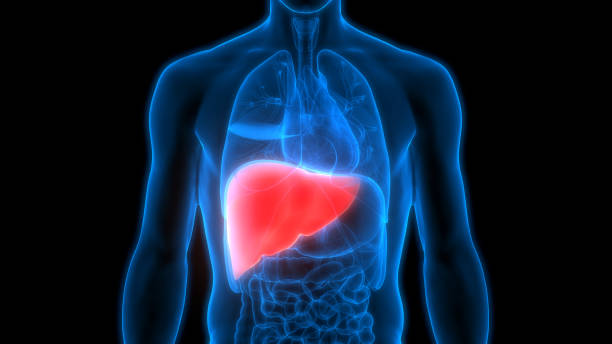The occurrence of many so-called lifestyle diseases appears to be increasing, and all are troubling.
One such disease is Fatty Liver Disease which occurs in both older and young adults, and it is unfortunately now being diagnosed in children.
What does the liver do?
The liver’s main functions are removing toxins and processing food nutrients. Blood from the digestive system filters through the liver then travels around the body. It is a vital organ.
What is Fatty Liver?
Fatty liver simply means you have extra fat in your liver cells. It is also called hepatic steatosis. Heavy drinking makes you more likely to get it, as consistent intake of too much alcohol can lead to a build-up of fat inside liver cells, making it harder for the liver to work. This build-up can damage the liver and lead to serious complications.
However even with little or no intake of alcohol some people get fatty liver disease. This is called non-alcoholic fatty liver disease or NAFLD. With NAFLD it is assumed that the amount of alcohol consumed by the patient is below the level where alcohol would have a significant impact on the disease development or progression.
The pathogenesis of non-alcoholic fatty liver disease is not properly understood, and many people with NAFLD are asymptomatic and only become aware of it when blood tests reveal elevated liver aminotransferases (AST/ALT) and the healthcare practitioner orders further tests such as ultrasounds.
There are 2 types of NAFLD – non- alcoholic fatty liver (NAFL) and non-alcoholic steatohepatitis (NASH) and while NAFL often is symptom free, some with NASH may complain of vague right upper abdominal discomfort and fatigue.
NAFLD is a common liver complaint in Western countries. While it is normal for the liver to contain some fat, it should not account for more than 10 per cent of the liver’s weight. A fatty liver may cause no damage, but sometimes excess fat leads to liver inflammation (steatohepatitis) which does cause liver damage. An inflamed liver may eventually become scarred and hardened. This condition, called cirrhosis, often leads to liver failure. NASH is one of the top three leading causes of cirrhosis.
What are risk factors for fatty liver disease?
- Being overweight (body mass index of 25-30) or obesity (body mass index above 30)
- Diabetes type 2 or insulin resistance
- Elevated triglyceride levels
- Sleep apnoea
- Gallbladder removal
- Exposure to certain pharmaceuticals
- Polycystic Ovary Syndrome (PCOS)
- Metabolic syndrome – a cluster of disorders that increase the risk of diabetes, heart disease and stroke. Signs and symptoms of metabolic syndrome include obesity, particularly abdominal obesity; high blood pressure; one or more abnormal cholesterol levels; high levels of triglycerides, low levels of high-density lipoprotein (HDL) cholesterol and resistance to insulin.
How can I prevent and/or reverse a chronic lifestyle disease like fatty liver disease?
Advice from health professionals includes:
- improving food choices and eating a balanced, healthy anti-inflammatory diet such as a Mediterranean Diet
- increasing organic fruits and vegetables and increasing fibre intake
- reducing excess sugar and salt
- removing junk food, and refined and processed foods
- avoiding trans fats and saturated fats, along with nitrates/nitrates and high fructose corn syrup
- including liver-supportive foods such as high sulphur foods like garlic and onions, and cruciferous vegetables like Brussels sprouts, cabbage, cauliflower, and broccoli
- increasing physical activity & exercise
- increasing water intake
- removing smoking and reducing or removing alcohol
- losing weight safely, if overweight, and keeping body weight within a healthy BMI
- being mindful of portion size when eating
- improving sleep and reducing exposure to stressful situations
- avoiding overuse of non-prescription pharmaceuticals and health and fitness supplements.
If you have fatty liver, and particularly if you have NASH, you should specifically get regular check-ups from a health practitioner to monitor your triglycerides, liver enzymes, and monitor and control existing diabetes.
Nutrients which may help include:
- Vitamin E
- N-acetylcysteine (NAC)
- Omega 3 essential fatty acids:
- Liver supportive herbs such as Silybum marianum (milk thistle) and Cynara scolymus (Globe Artichoke)
- Resveretrol
- Turmeric
- Green Tea
If you have been diagnosed with a fatty liver, or think you may have it, consult a health professional for guidance with diet and lifestyle changes.

